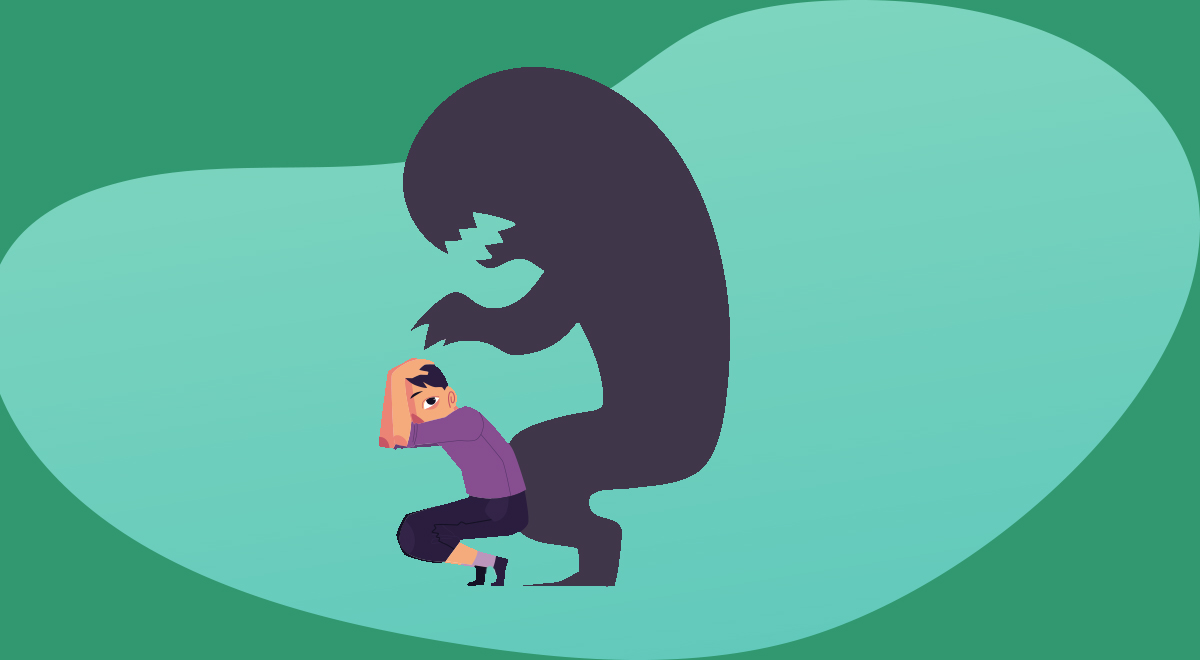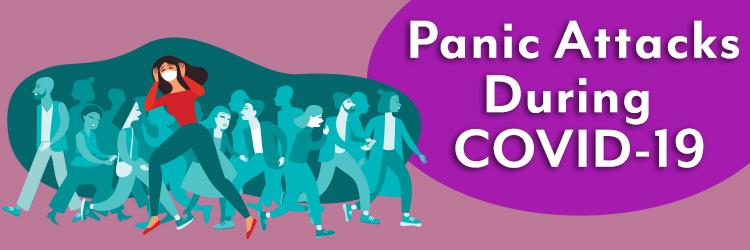Being in the midst of a pandemic, we are constantly seeing news about death and illness. We are also seeing a lot about how to monitor for symptoms of COVID-19. This may trigger panic attacks.
Unfortunately, some of the symptoms of panic attacks are similar to those of COVID-19. Many of us are on high alert for symptoms of the virus. When you’re already panicked, it can be especially hard to tell the difference.
When you panic, you might start to hyperventilate. Your muscles will often tense. Your chest might feel tight. You may shake and your heart may pound. Your hands and feet might feel tingly or numb. It’s important to keep in mind that if you are having a panic attack, it may feel like your body is malfunctioning—but panic attacks are actually your body trying to do its job.
When you experience a panic attack, your body is going into fight or flight mode in response to a perceived threat. If you were about to be hit by a car or chased by a bear, your body would be ready to run. That’s why your hands and feet may feel strange—the blood rushes away from your extremities and to the major muscles that would help in flight. You feel shortness of breath, chest tightening and faster breathing because your body wants to bring more oxygen to your muscles.
But most often, panic attacks happen out of nowhere or in response to anxiety itself. They often create a vicious cycle. The symptoms of a panic attack may make you worry you’re having a health issue like a heart attack or, more recently, COVID-19. This may cause more panic.
 Panic attacks can last anywhere from minutes to hours. Symptoms of anxiety, but not a panic attack, can be similar but less acute. When you see shortness of breath everywhere on the news as a severe symptom to look out for, it’s hard to know the difference.
Panic attacks can last anywhere from minutes to hours. Symptoms of anxiety, but not a panic attack, can be similar but less acute. When you see shortness of breath everywhere on the news as a severe symptom to look out for, it’s hard to know the difference.
But the best advice I’ve read from multiple experts on how to tell if it’s a panic attack or COVID-19 is whether you also have a severe cough and a fever. If you are only feeling shortness of breath or tightness in your chest with no cough or fever—even for prolonged periods—it’s most likely a panic attack or anxiety.
Keep in mind, too, that it’s allergy season, unfortunately adding another layer of complication. The best advice I’ve gotten is that if I were really sick, I would feel really sick. While a lot of the symptoms mirror one another, there’s a difference between panic attack sick and virus sick.
Try breathing exercises like square breathing: inhale through your nose to a slow count of four seconds, hold for four seconds, exhale through your mouth for four seconds, and hold for four seconds. This will send signals to your body that there is no threat. And it will remind you that you are able to breathe.
People will sometimes end up in the ER for symptoms of a panic attack. But right now it’s especially important not to overrun a hospital system that is already burdened. If you can’t tell whether you are having symptoms of COVID-19 or a panic attack, most physicians are offering telehealth options. You can do a virtual evaluation with a medical professional.
Your mental health is as important as your physical health. Take care of your mental health even when you’re not actively having a panic attack. As I’ve mentioned on this blog before, during this crisis, I’ve set an alarm to meditate three times a day. I do this because my anxiety has been heightened generally; even if I don’t feel particularly anxious when the alarm goes off, I know that regular meditation is going to help my overall mental health.
Try to take care of your body and go easy on yourself. You are not alone.
If you are struggling with a substance use or mental health disorder, there is help and hope. TruHealing Centers is open and here for you during this crisis. At our addiction treatment centers across the country, we will help you gain the coping skills to thrive in long-term recovery. Our facilities are receiving third-party, hospital-grade sanitization, to ensure you feel safe getting treatment during this unprecedented time. Call an admissions specialist at 410-593-0005.








